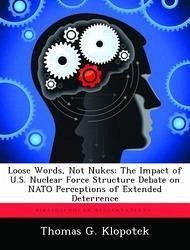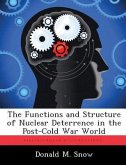America appears poised to redefine its extended deterrent commitment to NATO. This paper evaluates a selection of U.S. signals surrounding the slow-burning debate on the future of Non-Strategic Nuclear Weapons (NSNW) in Europe to determine a prevailing European understanding of the American NSNW policy preference. Despite the conspicuous silence in American intellectual and foreign policy circles defining what President Obama?s Global Nuclear Zero commitment means to the future of NATOs NSNW, the most consistent thread among U.S. actions and rhetoric is an American perception of a changed threat environment. The result is a deliberate policy vector that reinterprets deterrence and intellectually relegates NSNW to the dustbin of history as a dangerous Cold War relic. This intent is interpreted by European allies through the prism of flexible response strategy resulting in a loss of commitment perception, linked to historical perceptions of graduated deterrence. The U.S. has had difficulty communicating and convincing our NATO allies to accept and adopt this strategic recasting because American policy elites have thus far failed to offer a compelling theoretical construct that continues to extend historically understood security assurances. This has caused the beginning of a reexamination of core alliance functions, potentially undermining the strength of consultative norms and shared purpose.
Hinweis: Dieser Artikel kann nur an eine deutsche Lieferadresse ausgeliefert werden.
Hinweis: Dieser Artikel kann nur an eine deutsche Lieferadresse ausgeliefert werden.








